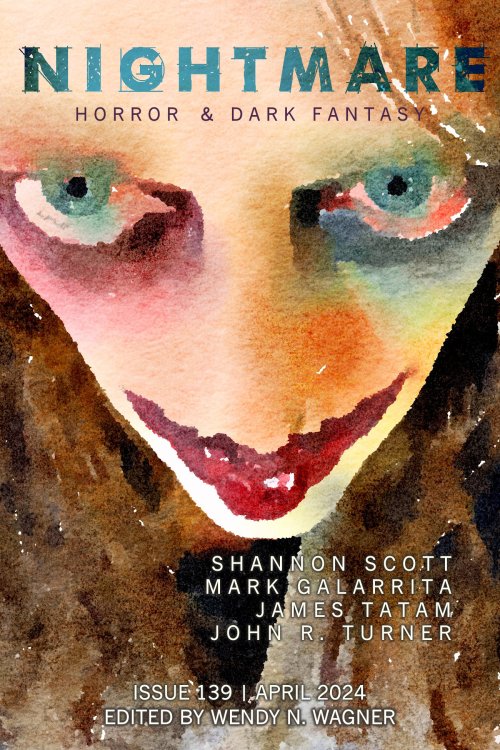What inspired you to write “The Trampling”?
I’ve been writing retellings and adaptations of classic genre literature for the past few years, investigating some of my favorite genre novels and stories from the past with a modern sensibility, reinventing language, or contextualizing scenes from the originals that seemed utterly contextless, or emphasizing particular themes that were either not perceived or else purposefully buried in the originals. “The Trampling” is an adaptation from The Strange Case of Dr. Jekyll and Mr. Hyde. Early in the first fifteen or twenty pages of the original, a lawyer tells a friend of his about a night where he witnessed a girl trampled by Mr. Hyde, and how he and a group of witnesses forced the man into paying the girl’s family money for his misdeed, only to discover that Mr. Hyde pays with a check signed by Dr. Henry Jekyll. In the book, this anecdote is summarized, and serves mainly to display how horrible Mr. Hyde is, and to pique the curiosity of readers to find out how he’s connected to such a respected member of society. Because of its summarization in the book, it leaves out a lot of context. Why was the little girl running down a street in winter at two or three in the morning?
I wanted to dramatize what Robert Louis Stevenson decided to summarize, in order to look more deeply into Victorian England, child labor, exploitation, and to connect those themes to the figure of Mr. Hyde, who is in fact Dr. Jekyll, just under the influence of a chemical concoction that allows him to release his darker side. In the book, it seems the reader should sympathize with Henry Jekyll. But I always thought Jekyll shouldn’t receive such sympathy when he clearly knows what his potion does, and continued to use it despite knowing the awful things he/Hyde would do while Jekyll moved back into the dual personality’s recessed consciousness. In many ways, I wanted to create a new reading with “The Trampling” that would indicate that Jekyll shouldn’t have been handled so gently all these years, and to also take this story, steeped in symbolism and metaphor, and connect it to the very real world that the Jekyll/Hyde duality continues to exist in, even today, where the wealthy and powerful are still largely respected and admired, even when so much of their wealth and power has been founded on the backs of the poor and the powerless. The Dr. Jekyll and Mr. Hyde story is, unfortunately, a universal one that hasn’t yet ended.
The girl in the story has an encounter with a classic horror monster in Mr. Hyde, but that’s not the real monster in the story. Is the real monster in horror usually the world, do you think?
Well, I think you’re right to say that Mr. Hyde isn’t the real monster in the story, but I’m not sure if it’s the world either. For me, Dr. Jekyll (and those he embodies or represents) is the monster, and has largely escaped justice in the readings we tend to give the book, often because we read this story and those like it as a morality tale, where we watch Jekyll come undone and lose control to Hyde, and the narrative attempts to solicit our sympathy for him even while it’s warning the reader not to enter into the dark dealings Jekyll did with his transformative potion. As I mentioned, though, I’ve always thought Jekyll — a person of power and influence, someone from the class of people who run and/or make up at least some of the rules of the world — is the true monster. He lives two lives, and is aware of what Hyde does during his transformed periods. That, to me, places culpability on Jekyll, specifically.
I do think, though, that when we accept the exploitation of various classes and minorities (like children in Victorian England) for the profit of the powerful, that we tend to see “the world” as inherently unjust and cruel, when it’s actually a particular group of people creating and enforcing that world. If you think, for instance, about some of the most resonant horror stories, you can see this too. The Stepford Wives, for instance, might seem like suburban America as a world in general is horrific, but it’s actually the men who live in Stepford who have created that horrific system that disappears women and replaces them with submissive robot versions. It’s a nightmare, but that nightmare isn’t just the nature of how existence in this world works. There are specific people who have created the nightmarish conditions for women in Stepford, and there are specific people who create nightmarish conditions for various groups of people in our world too.
You’ve got a novel coming out soon. Care to tell us a little bit about it? Any other news or upcoming publications you’d like to tell readers about?
Yes! I’m really excited. The novel is called Wonders of the Invisible World. It’s a story about a seventeen-year-old who stumbles upon a forgotten ancestral family sin that — if not resolved — will result in the destruction of his family. It has a lot of magic in it. A white stag. A man in a black suit who is an agent of Death. Visions and spells that are enacted by telling stories. And beyond the large-stage drama being carried out, there’s a small-stage story about how this young man discovers that there’s a lot more to him than he ever knew, because parts of his own life have been obscured as well.
What are you working on these days?
I just finished the page proofing for Wonders of the Invisible World, and now I’m returning to work on a novel called A Manual for the Most Effective Usage of Fallen Stars, which I hope to bring to completion by the time this interview sees print.
What’s your favorite horror novel?
This is the hardest question so far! There are so many I love. But I’ll go with a gut instinct answer here and say Stephen King’s It.
Share
Spread the word!







